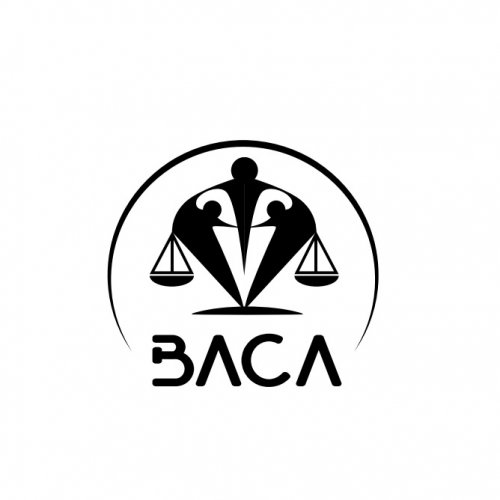Best Lawyers in South Sudan
Share your needs with us, get contacted by law firms.
Free. Takes 2 min.
Or refine your search by selecting a city:
List of the best lawyers in South Sudan
About Hiring a Lawyer in South Sudan
The process of hiring a lawyer in South Sudan involves several steps. Firstly, it's important to identify your legal needs and understand the type of lawyer you need as this can vary based on the nature of your legal issue. Lawyers in South Sudan are well-versed in both civil and criminal law matters, and you can find one who specializes in your specific issue.
Once you've identified your legal needs, you can search for a lawyer through referrals, or by contacting local legal organizations. After identifying potential lawyers, you would schedule appointments to discuss your case, their experience, and fees. The selection process completes once you find a lawyer you are comfortable with, who can effectively represent you and cater to your specific needs.
Why You May Need a Lawyer
A lawyer in South Sudan could be crucial for several circumstances. You may need a lawyer to represent you in court for criminal proceedings, help you understand the legal aspects of starting a business, or assist you in resolving family- or labor-related matters. Legal professionals can also guide you through real estate transactions, immigration issues, or any human rights violation that may arise.
Local Laws Overview
South Sudan operates under a mix of statutory and customary laws that derive from several sources, including the Transitional Constitution of 2011, statutory legislation, and local traditional laws. Criminal law in South Sudan is heavily influenced by its Penal Code and Code of Criminal Procedure, reflecting a mix of common law principles and customary law. Family law, land law, and contract law are also significant areas of the South Sudanese legal system.
Frequently Asked Questions
1. How do I find a good lawyer in South Sudan?
You can find a good lawyer in South Sudan through referrals, contacting local legal organizations, or by searching the online directory of the South Sudan Bar Association.
2. What type of issues can a lawyer help with?
A lawyer can help with a variety of issues, such as criminal charges, business incorporations, family matters, human rights issues, real estate transactions and more.
3. Are there any costs associated with hiring a lawyer?
Yes, lawyers typically charge fees for their services which can vary based on factors such as their expertise, the complexity of your case, and the lawyer's reputation.
4. Can I represent myself?
Yes, you have the right to represent yourself. However, legal proceedings can be complex. Therefore, it's usually advised to hire a professional lawyer.
5. Are lawyers regulated in South Sudan?
Yes, lawyers in South Sudan are regulated by the South Sudan Bar Association.
6. What should I expect during my first meeting with a lawyer?
During the first meeting, you should expect to discuss the specifics of your case, the lawyer's expertise in the area, potential strategies, and the lawyer’s fees.
7. What should I bring to my first meeting with a lawyer?
You should bring any documents or evidence related to your case.
8. How long does a legal proceeding typically take?
The duration of a legal proceeding can greatly vary based on the complexity of the case.
9. Can a lawyer guarantee the outcome of a case?
Legal ethics and professional responsibility prohibit lawyers from guaranteeing the outcome of a case.
10. Can I change my lawyer during a legal proceeding?
Yes, you have the right to change your lawyer during a legal proceeding if you're not satisfied with their services.
Additional Resources
For additional support, you may consider reaching out to the South Sudan Law Society and the South Sudan Bar Association. These organizations can provide helpful resources and guidance in your legal journey. Moreover, the Ministry of Justice and Constitutional Affairs can also provide useful information about the legal system.
Next Steps
If you need legal assistance, decide on the type of lawyer you need based on your legal matter. Then begin your search through referrals, online directories or by directly contacting local legal organizations. Once you have a list of potential lawyers, schedule a consultation, discuss your case, and inquire about their fees. Once you are comfortable with a lawyer's experience and charges, you can proceed to hire them and tackle your legal issue.
Lawzana helps you find the best lawyers and law firms in South Sudan through a curated and pre-screened list of qualified legal professionals. Our platform offers rankings and detailed profiles of attorneys and law firms, allowing you to compare based on practice areas, experience, and client feedback.
Each profile includes a description of the firm's areas of practice, client reviews, team members and partners, year of establishment, spoken languages, office locations, contact information, social media presence, and any published articles or resources. Most firms on our platform speak English and are experienced in both local and international legal matters.
Get a quote from top-rated law firms in South Sudan — quickly, securely, and without unnecessary hassle.
Disclaimer:
The information provided on this page is for general informational purposes only and does not constitute legal advice. While we strive to ensure the accuracy and relevance of the content, legal information may change over time, and interpretations of the law can vary. You should always consult with a qualified legal professional for advice specific to your situation.
We disclaim all liability for actions taken or not taken based on the content of this page. If you believe any information is incorrect or outdated, please contact us, and we will review and update it where appropriate.
Refine your search by selecting a practice area.
Accidents & Injuries
Banking & Finance
Bankruptcy & Debt
Business
Civil & Human Rights
Consumer Rights
Corporate & Commercial
Criminal Defense
Employment & Labor
Energy, Environment & ESG
Family
Immigration
Insurance
Intellectual Property
Lawsuits & Disputes
Media, Technology and Telecoms
Notary Services
Private Client
Real Estate
Browse law firms by city in South Sudan
Refine your search by selecting a city.






























